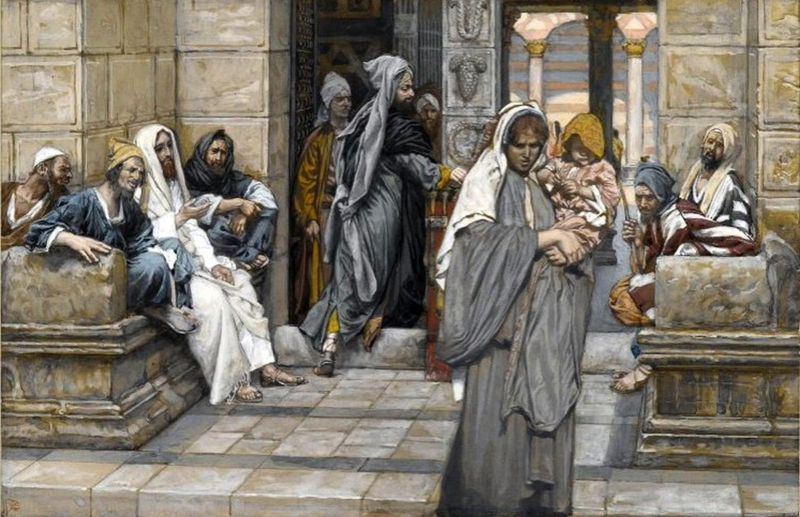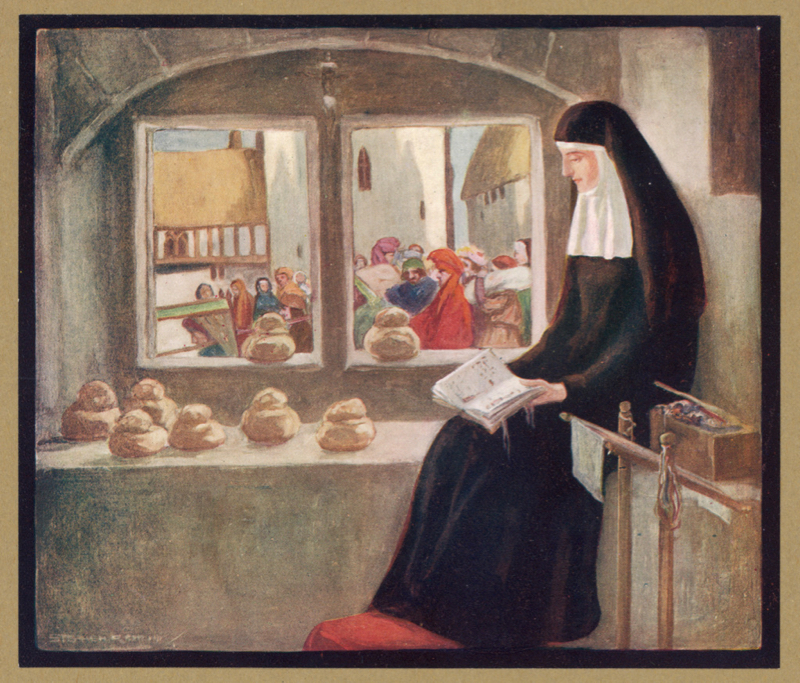Today’s readings, focussed on what’s referred to in the gospel as “the time of distress”, are not for the fainthearted. The apocalyptic theme, articulated on this Sunday since time immemorial, carries an unmistakeable sense of foreboding, intimating the end of history, followed by judgment. Its purpose, however is not to fuel fear, but to dispel it. Christian apocalyptic literature is sometimes spoken of as “the literature of the dispossessed”, because it was intended originally to encourage the faithful in difficult times, especially in times of persecution.
Difficult times and persecution belong, of course, not just to the past. Even now, throughout the world, Christianity is the most widely persecuted faith. And even where, as here in the West, we’re not being persecuted – not yet, at least – we’re once again the object of cynicism, scepticism and contempt; some of it, of course, brought upon ourselves.
But no age has been without its trials and tribulations and none of us is exempt from pain, suffering and loss. When has there ever been a time when nations haven’t bulldozed their way into other nations, provoking war, bloodshed and grief? And, in particular, when has there ever not been a time when Christians, somewhere in the world, have not suffered rejection, ridicule and persecution?
This particular passage was written when the fledgling Church was experiencing for the first time hostility and misunderstanding that would eventually turn to outright hatred. Both pagans and Jews despised early Christians as irreligious upstarts, disturbers of settled and sacred ways, atheists, indeed. The Roman historian, Tacitus (b 56AD), says they were accused of inciting hatred of all things ancient and religious, and even of the human race itself; 2 and their gatherings were rumoured to involve sinister rites, including cannibalism.
But no sooner had persecution ended with the Constantinian peace, than the Christianised Western Empire began to collapse under waves of barbarian invaders, and the Church was again under threat, facing once more a completely unknown future. It’s almost now impossible for us to appreciate the shock that would have been felt – St Augustine himself speaks of it – on hearing in 410 that sacred and eternal Rome had been sacked by Alaric the Goth and his barbarian hordes. The world seemed to be collapsing and the end-times seemed to have arrived. St Jerome (d 420AD), in his cell in Jerusalem, spoke for many when he said that the whole world was perishing: Totus mundus periit.
It’s been suggested that the nearest modern equivalent of such news would be if we were to hear over the airwaves that a nuclear bomb had been dropped on New York. Remember the foreboding that followed the destruction of the World Trade Centre in New York or, for us those of us who still remember it, the Cuban Missile Crisis in 1962, when the world actually did seem on the brink of nuclear annhilation. But, as I said, the purpose of these apocalyptic texts is not to rattle us but to reassure us. The end-times are where we live every day of our lives. For each of us, this and every day is potentially our last. Each of us faces the end of the known world – the world known to us, that is – in the span of our own life. The world, with its all opportunities and promise, passes away for each of us each night, with the closing of a day that will never come again. Whether we will receive the gift of another day is in God’s hands alone.
Early Christian thinkers asked how the vicissitudes of both history in general and of our individual lives can be reconciled with God’s promises and the promises of the Gospel. Their answer was the virtue of hope, rooted in our unshakeable belief in God’s providence, which governs everything that happens in this world and all possible worlds. Only by entrusting ourselves to God’s providence can we keep a sense of the largest possible picture, while engaging fully with each moment. Only by entrusting ourselves to God’s all-encompassing providence can we do that which we have to do next with delight, as in Meister Eckhart’s description of holiness. Only our trust in God’s providential presence in every circumstance and every detail of our lives enables us to steer clear of the twin extremes of despairing fatalism and anxious activism. Only our trust in God’s providence dispels the twin illusions, either thinking that everything depends ultimately on us or thinking that our efforts don’t matter one jot. Only our trust in God’s providence, our trust, that is, that he is never doing nothing, enables us to find the right balance between detachment and concern, between caring and not caring; between on the one hand, confidence to make bold decisions and wisdom, on the other, to sit lightly to all our plans.
And, perhaps most important of all, and certainly most needed, only our unshakable trust in God’s providence can reassure us that not even our worst mistakes and most shameful failings can prevent God from bringing his good purposes, for us personally and for the whole of creation, to their fulfilment in Him. This gospel, then, is a message of hope, reassuring us that we can afford to live fully in the present, that everything necessary for our salvation is given to us, wherever we are and whatever our situation, in each moment of our lives. The ultimate antidote to all anxiety is knowing that all things are in God’s hands; knowing, in Julian of Norwich’s oft-repeated words, that “all shall be well, and all manner of things shall be well.”



 Loading ...
Loading ...
What do you think?
You can post as a subscriber user ...
User comments (0)